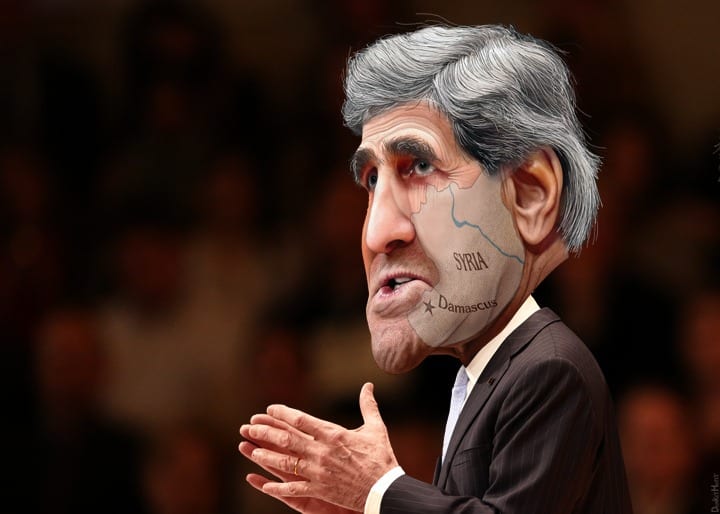
Sergei Lavrov: Stance on Syria: A Historical Perspective to Avoid Repeating Past Mistakes
Updated Sept 2023
Introduction:
In international relations, history has often served as a valuable teacher. As we examine the current geopolitical landscape, it becomes evident that understanding the past is crucial to avoiding repeating mistakes. In this article, we delve into the perspective of Russian Foreign Minister Sergei Lavrov on the Syrian conflict, analyzing it through a historical lens. Lavrov’s unwavering support for Bashar al-Assad and his emphasis on the importance of stability in the region provide valuable insights into the complexities of the Syrian crisis.
Learning from History: Gaining Insights for a Better Future
In international relations, the lessons of history serve as invaluable guides, illuminating the path towards a more peaceful and prosperous future. As we delve into Sergei Lavrov and his stance on Syria, we embark on a journey that sheds light on the present and offers a profound understanding of the historical factors that have shaped the current situation.
The consequences of failing to learn from past mistakes have been dire throughout history. From the aftermath of World War I to the conflicts in Vietnam and Iraq, the world has witnessed the devastating outcomes of hasty decisions and ill-informed interventions. By examining Lavrov’s perspective on Syria, we gain a deeper appreciation for the importance of avoiding repeating such errors.
Sergei Lavrov has never wavered in his support for Bashar al-Assad, and his emphasis on regional stability provides valuable insights. He argues that a peaceful resolution in Syria is unlikely without Assad’s involvement, as he represents the interests of most Syrian society. This perspective prompts us to reflect on historical instances where removing leaders without a viable alternative has led to chaos and prolonged suffering.
Drawing parallels from history, we can discern patterns and identify potential pitfalls. The power vacuum created by the fall of Saddam Hussein in Iraq and the subsequent rise of extremist groups is a stark reminder of the complexities involved in regime change. Lavrov’s stance urges us to consider our actions’ long-term consequences and approach the Syrian crisis with caution and a nuanced understanding of the past.
Learning from history can chart a more informed and effective course of action. Through this lens, we can navigate the complexities of the Syrian conflict and strive for sustainable solutions that prioritize the Syrian people’s well-being and the region’s stability.
Sergei Lavrov Staunchly Supports for Assad: A Controversial Standpoint
Sergei Lavrov, the Russian Foreign Minister, has emerged as a prominent advocate for the Syrian government and its leader, Bashar al-Assad. In the face of international pressure and criticism, Lavrov boldly argues that removing Assad from power would not lead to the desired stability in the region. His stance challenges the prevailing narrative and prompts us to delve deeper into the complexities of the Syrian conflict.
Lavrov’s position rests on the belief that Assad represents the interests of most Syrian society. He contends that a peaceful resolution to the conflict is unlikely without Assad’s involvement. While this viewpoint has drawn criticism from some quarters, it highlights the importance of considering the perspectives of all stakeholders in the pursuit of a lasting solution.
The Syrian conflict has been marked by many factions and divergent interests, making it a complex web of political, ethnic, and religious dynamics. Lavrov’s unwavering support for Assad forces us to confront whether a viable alternative exists and whether removing Assad would truly bring about the stability sought by the international community.
Critics argue that Lavrov’s stance disregards the Assad regime’s human rights abuses and atrocities. They contend that Assad’s continued rule perpetuates a cycle of violence and hinders the prospects for a peaceful resolution. However, Lavrov’s position underscores the need for a comprehensive and inclusive approach that considers the realities on the ground and the aspirations of the Syrian people.
As the Syrian conflict continues to evolve, understanding Lavrov’s perspective on Assad is crucial for comprehending the situation’s complexities. It challenges us to question conventional wisdom and explore alternative paths towards a sustainable resolution. By engaging with diverse viewpoints, we can foster a more nuanced understanding of the Syrian crisis and work towards a future that prioritizes stability, justice, and the well-being of the Syrian people.
Drawing Parallels from History: Lessons for the Present
To truly comprehend Sergei Lavrov’s perspective on the Syrian conflict, it is crucial to draw parallels from historical events. One such example that resonates strongly is the aftermath of the Iraq War. The removal of Saddam Hussein without a comprehensive plan for governance and stability led to a power vacuum and sectarian strife, plunging the country into chaos. Lavrov argues that a similar scenario could unfold in Syria if Bashar al-Assad is forcibly removed from power without a viable alternative.
Examining past mistakes allows us to understand better the potential consequences of hasty actions in pursuing regime change. The Iraq War serves as a stark reminder that toppling a leader without a well-thought-out plan can have far-reaching and unintended consequences. It is essential to consider the complexities of the Syrian conflict and the diverse interests at play before advocating for drastic measures.
By drawing historical parallels, we gain valuable insights into the challenges of nation-building and the delicate balance required to achieve stability in post-conflict environments. Lavrov’s perspective urges us to approach the Syrian crisis cautiously and prioritise the Syrian people’s long-term well-being over short-term political gains.
However, it is essential to note that drawing historical parallels should not be seen as a one-size-fits-all approach. Each conflict and context is unique, and lessons from the past should be applied judiciously. While history can provide valuable guidance, it is crucial to adapt strategies to the specific circumstances of the Syrian conflict.
As we navigate the complexities of the Syrian crisis, understanding the potential consequences of hasty actions and drawing on historical lessons can help us make more informed decisions. By learning from past mistakes, we can strive for a more stable and peaceful future for Syria and its people.
The Escalation of Rhetoric: A Tense Prelude to Potential Conflict
As the Syrian conflict continues to unfold, the rhetoric surrounding it has reached new heights; in a recent interview with Radio Russia, Sergei Lavrov showcased his unwavering stance on Syria, emphasizing Russia’s commitment to supporting Bashar al-Assad. This escalation in rhetoric reflects the growing tensions between Russia and the West, particularly the United States. Recognizing that such heightened rhetoric often serves as a prelude to potential military responses, which could have far-reaching implications for global stability, is crucial.
The power of words should not be underestimated in the realm of international relations. Rhetoric serves as a tool to convey intentions, assert positions, and rally support. In the case of Lavrov’s firm stance on Syria, his words carry weight and signal Russia’s unwavering support for Assad’s regime. This assertiveness indicates Russia’s determination to protect its interests in the region and maintain its influence.
However, it is vital to approach the escalation of rhetoric with caution. While strong rhetoric can exert influence and signalling resolve, it also raises concerns about the potential for further escalation and the risk of military confrontation. The international community must carefully navigate this delicate balance, seeking diplomatic solutions and de-escalation measures to prevent the situation from spiralling out of control.
The intensification of rhetoric in the Syrian conflict underscores the need for robust diplomatic efforts and dialogue between all parties involved. It is crucial to find common ground and explore avenues for peaceful resolution, as military responses can have devastating consequences for the Syrian people and the region’s stability.
As the world watches the escalating rhetoric surrounding the Syrian conflict, it is imperative to remain vigilant and actively seek avenues for de-escalation. The stakes are high, and the potential for unintended consequences looms large. By engaging in constructive dialogue and prioritizing diplomacy, the international community can work towards a sustainable and peaceful resolution to the Syrian crisis.
Sergei Lavrov’s Impact on Diplomatic Discourse: Unveiling the Implications
The implications for diplomatic discourse in light of Lavrov’s bold message to Kerry are significant. In today’s increasingly complex and competitive global landscape, effective communication and assertiveness are crucial for diplomats to convey their positions and defend their interests.
Lavrov’s statement serves as a potent reminder that diplomatic language can profoundly impact the course of discussions and influence outcomes. By employing assertiveness and clarity, diplomats can assert their positions with conviction and make their voices heard on the international stage.
Language is a powerful tool in diplomacy that can either bridge divides or exacerbate tensions. Lavrov’s provocative message to Kerry underscores the importance of choosing words carefully and strategically. Diplomats must strike a delicate balance between assertiveness and diplomacy, finding ways to convey their positions firmly while still fostering an environment conducive to constructive dialogue.
Furthermore, Lavrov’s bold message highlights the evolving nature of diplomatic discourse. In an era of heightened global competition, diplomats face the challenge of navigating complex geopolitical dynamics and advancing their countries’ interests. The ability to effectively communicate and assert one’s position is essential in this context, as it can shape the trajectory of negotiations and influence the outcomes achieved.
However, it is essential to note that assertiveness in diplomatic discourse should be accompanied by a genuine willingness to engage in dialogue and find common ground. While strong statements can capture attention and set the stage for negotiations, they should ultimately serve as a catalyst for constructive engagement rather than an obstacle to progress.
The Formation of Alliances: Shifting Dynamics in Global Power
As the Syrian conflict unfolds, alliances have emerged and evolved, reshaping the geopolitical landscape. In response to Western pressure, Russia and China have drawn closer, presenting a formidable challenge to the United States and its traditional dominance in international relations. This alliance carries significant implications for the balance of power on the global stage, marking a shift in the dynamics of geopolitical influence.
The growing alignment between Russia and China reflects a strategic response to perceived Western interference and attempts to shape the outcome of the Syrian conflict. Both countries share concerns about the potential for regime change and its destabilising effects on regional and global security. By forging closer ties, Russia and China aim to protect their respective interests and assert their influence in the face of Western dominance.
The implications of this alliance extend beyond the Syrian conflict. It signals a broader realignment of power dynamics, challenging the traditional Western-led order. The United States, once the undisputed global power, now faces a multipolar world where rising powers contest its influence.
The U.S.’s response to this shifting landscape will be crucial in determining its future role in international affairs. Failure to effectively address this challenge could accelerate its decline as the dominant global power. It requires a careful reassessment of strategies, a willingness to engage in constructive dialogue, and recognising the changing power dynamics.
As the formation of alliances continues to shape the global landscape, policymakers need to navigate these shifting dynamics with a nuanced understanding of the interests and motivations of all parties involved. By embracing diplomacy, fostering cooperation, and adapting to the changing realities of power, nations can work towards a more stable and balanced international order.
Conclusion:
Sergei Lavrov’s statement to John Kerry, urging him to stop acting like a “skirt-wearing woman,” has sparked both intrigue and controversy. By examining the historical context and motivations behind Lavrov’s words, we gain insights into the complexities of international relations and the significance of assertiveness in diplomatic discourse. As the world navigates the challenges of global diplomacy, it is crucial to understand the power of language and its impact on shaping outcomes.
In examining Sergei Lavrov’s perspective on the Syrian conflict, we gain valuable insights into the situation’s complexities and the importance of learning from history. By understanding the historical context and potential consequences of actions, we can strive to avoid repeating past mistakes. As the world navigates the challenges of the Syrian crisis, it is crucial to approach the situation with a nuanced understanding of the past and a commitment to finding sustainable solutions for the future.
Other articles of interest:

Maximizing Gains: Mastering Market Sentiment Indicators

How to Achieve Financial Goals: The Midas Touch for Your Financial Dreams

Sophisticated Strategies for US Dollar Index Investing: Elevate Your Forex Game

How much has the stock market dropped in 2023?

Visionary Views: How to Achieve Financial Freedom Before 40

A Major Problem with ESOPs is That Employees Can Lose Big

The Sophisticated Guide to Cryptocurrency Investing for Dummies PDF

Considering the Impact of Inflation, Why Is Investing Important for Long-Term Financial Stability?

What the NASDAQ Composite is Trading at in Today’s Market

What Is Contrarian Investing Unleashing Creative Perspectives

ETF Newsletter: Customized Options for Astute Investors

ETF Service Providers: In-House Options for the Tactical Investor

Fearlessly Trade Your Way to Financial Freedom

Unlocking Radiance: Hemp Benefits for Skin Illumination



